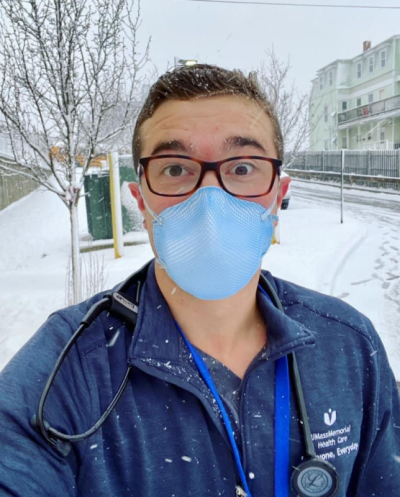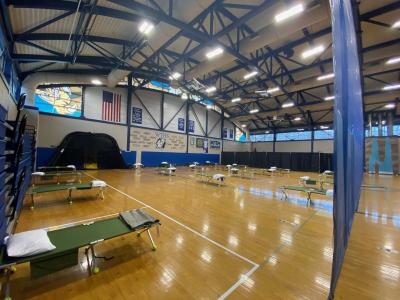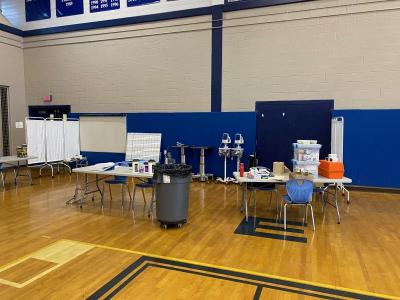Former Mattapoisett, Wareham resident helps the homeless through covid
Former Mattapoisett and Wareham resident Adam Bliss was one of the co-organizers behind Worcester's first coronavirus-only homeless shelter.
Bliss is working on his Doctorate in Nursing Practices and is currently a Nurse Practitioner at the Family Health Center in Worcester.
Before the pandemic, he was doing shelter advocacy work, since the shelter would have an average of 122 people a night sleeping in a shelter built for 30. But, with coronavirus, that work became more urgent. The city set up three satellite shelters in high schools and churches to relieve some of the pressure on the main shelter.
In about mid-March shelters started seeing homeless people that were discharged from the hospital and ordered to self-isolate but had no place to do so.
“I remember being so upset that no one was thinking about the homeless,” Bliss said of the beginning of the effort. So, on March 15 they started planning.
After a quick increase in positive cases, a new shelter at Worcester Technical High School became a “positive only” shelter, opening on March 28.
Bliss worked with his mentor Erik Garcia to co-lead the new shelter. The two organizers lived in a locker room of the high school for the first week of operations and logged 120 hours, because they wanted the staff of 105 volunteers to be able to find them if they ever had questions.
About half of the patients were asymptomatic. Patients that were symptomatic had high fevers, shortness of breath, coughs, gastrointestinal issues, and body aches.
Bliss said that at least ten people in the shelter needed to be transported to the hospital for more intense care.
He and Garcia worked with Worcester EMS to have the homeless men and women in all shelters tested every week. Just as the state saw an initial curve to the cases, Bliss said he saw the cases rise to 49% in the homeless population in the second week, then drop to under 10% in the fourth week.
As people recovered, the number of men and women in the shelter dropped, until they were treating 15 people in a shelter for 75, which cost a lot in terms of resources.
Dwindling demand and a number of political factors meant that by mid-May it made the most sense for the Family Health Care Center to close the covid-only shelter. The Massachusetts Emergency Management Agency ran a second coronavirus-positive shelter for a bit, before that closed too.
From start to end, Bliss’ shelter had 200 patients.
And he said he learned something valuable for his work with the homeless going forward.
“Meeting people where they are and giving them food, shelter, kindness and cleanliness, goes a long way toward trust and compliance,” Bliss said.
He said he even had some people who decided they wanted to start work on substance abuse problems while sheltering at the high school.















